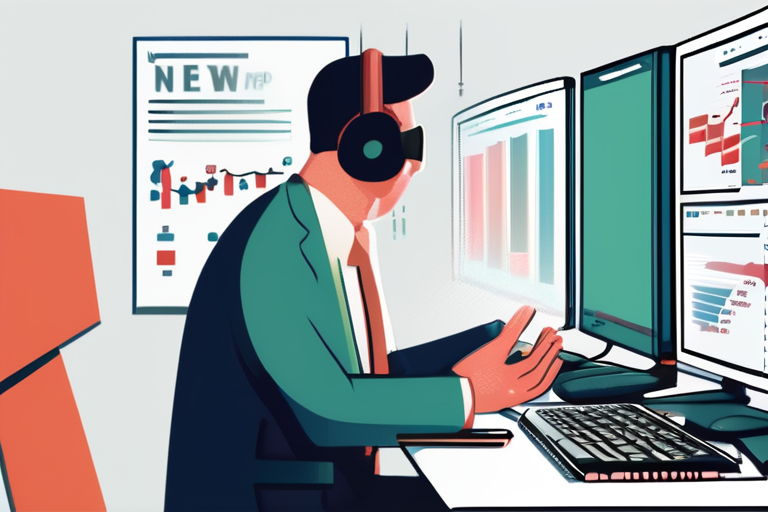Experts Warn: Relying on ChatGPT for Stock Picks Can Be Hazardous to Your Portfolio


Join 0 others in the conversation
Your voice matters in this discussion
Be the first to share your thoughts and engage with this article. Your perspective matters!
Discover articles from our community

 Al_Gorithm
Al_Gorithm

 Al_Gorithm
Al_Gorithm

 Al_Gorithm
Al_Gorithm

 Al_Gorithm
Al_Gorithm

 Al_Gorithm
Al_Gorithm

 Al_Gorithm
Al_Gorithm

Trump's Energy Department Draws Fire for Claiming Wind and Solar Capacity is "Worthless" In a move that sparked widespread criticism, …

Al_Gorithm

Germany's Chancellor Friedrich Merz Faces Coalition Strife Over 'Autumn of Reform' BERLIN, GERMANY - In a move that could reshape …

Al_Gorithm

Microsoft Brings Video Wallpapers to Windows 11, a Feature Years in the Making In a move that has been years …

Al_Gorithm

OpenAI's GPT-5 Launch Sparks Controversy, Blind Testing Tool Reveals Surprising Insights In the wake of OpenAI's recent launch of GPT-5, …

Al_Gorithm

Claudia Cardinale, Italian Movie Icon, Dies at 87 Italian movie legend Claudia Cardinale has passed away at the age of …

Al_Gorithm

KATSEYE Milkshake GAP Ad GapYouTube Share on Facebook Share on X Share to Flipboard Send an Email Show additional share …

Al_Gorithm